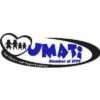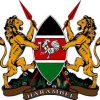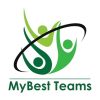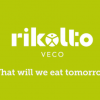Endline Evaluation – Request For Proposal at UMATI
Job Overview
ENDLINE EVALUATION-REQUEST FOR PROPOSAL
Project Title: Strengthening the Access to Integrated SRH Services Outreach Approaches
Project Period: Two Years (2021-2023)
Funding Agency: Bergstrom Foundation
Implementing Institution: UMATI
INTRODUCTION
Chama cha Uzazi na Malezi Bora Tanzania (UMATI) is an autonomous, non-political national NGO providing Sexual and Reproductive Health and Rights (SRHR) information, education, and services in Tanzania. It has been in operation since 1959 and became a leading national organization providing quality youth-friendly SRH information and services particularly to young people and women. In 1965 UMATI became a member association for International Planned Parenthood Federation (IPPF) where technical and core funds support was provided. By being a member of IPPF, UMATI is internationally connected through experience sharing with other IPPF member associations.
UMATI is envisioning to see a Tanzania where people are free to choose and exercise their Sexual and Reproductive Health and Rights without discrimination in gender, sex, and age. The visioning process of UMATI highlighted the need to integrate “without discrimination” as a recurring theme as well as an organizational value statement. “Freedom of choice” was agreed as a paramount inclusion at the end that UMATI would love to see by doing its core business.
UMATI’s Mission Statement is to champion SRHR and provide information and services targeting the young and underserved. In coming up with the Mission Statement, cognizance was put on the strategic position of UMATI as a leading SRHR service provider in Tanzania. This was eventually replaced by “champion” recognizing the need to lead not only by the provision of services but also by enabling other service providers including capacity building to local CSOs partners in the country to champion SRHR through their advocacy initiatives. UMATI strives for structural poverty reduction by improving the health of people in the country regardless of gender and political or religious beliefs, with priorities being given to the poorest communities and hard-to-reach populations.
ABOUT THE PROJECT
The Umkoba project intended to expand access to integrated SRH services in rural areas of Kigoma. The project used the following approach to reach the desired results within a specific project duration
- Cluster Model;
- Capacity building to health providers;
- Demand creation through sensitization and mobilization meetings;
- Mobile van Outreach;
- Health facility-based outreaches;
- Community-based model(CHWs, PEs);;
- Youth Weekend Clinic;
During the project implementation, capacity building to service providers, Community Health Workers, and Peer Educators were performed through various training.
- 30 peer educators were trained on SRHR/FP;
- 70 CHWs were trained on the provision of SRH/FP information and services;
- 30 service providers from public facilities were trained on comprehensive Family Planning (LARC).
Service provision was done through the Youth Weekend clinic, health facility-based outreach, and mobile van outreach to take closer services to the community, especially in hard-to-reach areas. Demand creation was done with close support from Local Government Authority, CHWs, and PEs to make sure the clients were being mobilized for the services.
GEOGRAPHIC COVERAGE
This project is implemented in Six Districts in Kigoma regions
- Kasulu DC
- Kibondo DC
- Kakonko DC
- Uvinza DC
- Kasulu TC
- Buhigwe DC
GOAL
To contribute towards improved sexual and reproductive health (SRH) outcomes of women, men, adolescents, and youth in Kigoma ultimately leading to healthy, productive, and empowering women, men, and youth.
OBJECTIVES
- To increase access to comprehensive SRHR information by women of reproductive age, men, and youth in Kigoma by 2024.
- To increase access to integrated SRH services particularly LAPM to women of reproductive age, men, and youth in the Kigoma Region by 2024.
EXPECTED RESULTS
- 359,566 women, 163,620 men, and 111,604 youth will be reached through increased awareness of integrated SRHR information and services for women of reproductive age, men, and girls in the project target areas.
- Reaching 79,885 new acceptors for LAPM, generating a total of 272,052 CYP
TERMS OF REFERENCE
UMATI plans to carry out an independent evaluation of this project to provide evidence of the outcomes of the project. The evaluation will be conducted at end of the implementation phase II among a sample of benefiting community members including men , and women of Reproductive age and youth aged 10-24 will participate in this evaluation and the findings will determine the effect of the intervention.
OBJECTIVES OF THE EVALUATION
The broad objective of this evaluation is to measure the extent this project has achieved the intended outcomes.
Based on the end line data gathered, the following questions will be considered for this evaluation:
- What progress did the project make against the outcome/impact indicators? Provide an analysis against the baseline data/national statistics for the catchment population ie age of users, methods mix, the unmet need, and CPR to evaluate the project effectiveness.
- What were the pre and post-intervention knowledge and skills of individuals benefiting from the service? Did individuals trained to utilize skills gained? What was the reported or observed change in the status of beneficiaries (individuals or households)?
- Did the intervention facilitate the strengthening of linkages between Community Volunteers (CHWs and Pes) , health facilities and mobile unit ? If so, how effective was the intervention and what impact did the strengthening of the linkages make to the community and the service providers?
- Are the benefits of the project intervention sustainable through the following components applied during the implementation of the project
- Cluster Model
- Capacity building to service providers on the provision of Family Planning services
- The effective use of community Volunteers (CHWs and Pes) for awareness creationIntegration of SRH services
- The use of mobile van services in reaching hard to reach the population
- How has the project facilitated potential replication and scale-up of the identified good lessons learned? ie the use of available services statistics (data)for decision-making in the project catchment areas
The suggested methodology should include a study of the direct beneficiaries to determine the impact of the project in their lives, In-depth interviews with key stakeholders, and a Documents review.
Data will be collected through administering questionnaires to community members, focus group discussions aimed at determining changes in their knowledge and behavior, as well as practices following project implementation.
THE CONSULTANCY
For this evaluation, UMATI in collaboration with identified consultant will work closely to develop the evaluation tools and further sharpen the methodology before the implementation of the work.
SCOPE OF WORK
The following is a general scope of work for the evaluation.
- To prepare and present the evaluation protocol
- To prepare and Present the developed evaluation tools
- To apply for an ethical clearance certificate with support from UMATI
- To work with UMATI staff to finalize an appropriate evaluation design
- To carry out a desk review of existing data/information related to the project available at the project site and UMATI HQ.
- To translate the developed evaluation tools into commonly spoken language in the local areas and translated back into English.
- To coordinate logistics of collection of necessary data, supervision of evaluation team (Data Collectors ), quality control of data, cleaning, analysis and interpretation of the findings.
- To analyze and evaluate the outcomes, impact and effectiveness of the project interventions.
- To analyze and evaluate the sustainability potentials of the project intervention/impact and provide recommendations as appropriate.
- To highlight lessons learnt and formulate recommendations with a focus on assessing how individual elements of success could be replicated or scaled up for subsequent projects.
- To develop the final evaluation report
- Present the evaluation report at a dissemination workshop
REQUIREMENTS
UMATI is looking for a consultant (Principal Investigator) with the following set of skills, knowledge and experience:
- A strong evaluation background with a proven record of successfully conducting assignments of similar nature.
- An advanced university degree in research, population studies, community health or similar speciality desirable.
- A good understanding of the local socio-economic context, particularly of issues relating to Kigoma.
- Solid knowledge of SRH
TIMELINES
The evaluation is scheduled to take place in the month on May 2023. Final report submitted by the four week of June 2023.
| Activity | May | June | ||||||
| W2 | W3 | W4 | W1 | W2 | W3 | W4 | W5 | |
| Main Activity: Conduct End line Evaluation | ||||||||
| Sub Activity | ||||||||
| Hiring a Consultant | √ | |||||||
| Review of the tools |
√ |
|||||||
| Training of Data Collectors |
√ |
|||||||
| Fieldwork(Data Collection) |
√ |
√ |
||||||
| Report Writing |
√ |
√ |
||||||
| Submission of Final Evaluation report |
√ |
|||||||
SUBMISSION
The applicant will submit electronic Expression of Interest (EOI) stating his/her capability to conduct the evaluation; include a budget showing details of all activities (e.g. # of days per person and description of person’s job; the cost of tools, etc); proposed work plan with timelines; curriculum vitae and description of similar project assignments undertaken. The expressions of interest must be submitted physically to Executive Director UMATI by 13 May 2023
SCORECARD FOR TECHNICAL AND FINANCIAL PROPOSALS
| Project Description: | |||
| Agency Name: | |||
| Reviewer Name: | |||
| Date: | |||
| Category | Max Points | Score |
Comments
|
|
10 | ||
|
10 | ||
|
10 | ||
|
20 | ||
|
10 | ||
|
20 | ||
|
20 | ||
| 100 | |||
The expressions of interest must be submitted to Executive Director at [email protected]
DOWNLOAD THE FULL REQUEST FOR PROPOSAL HERE





